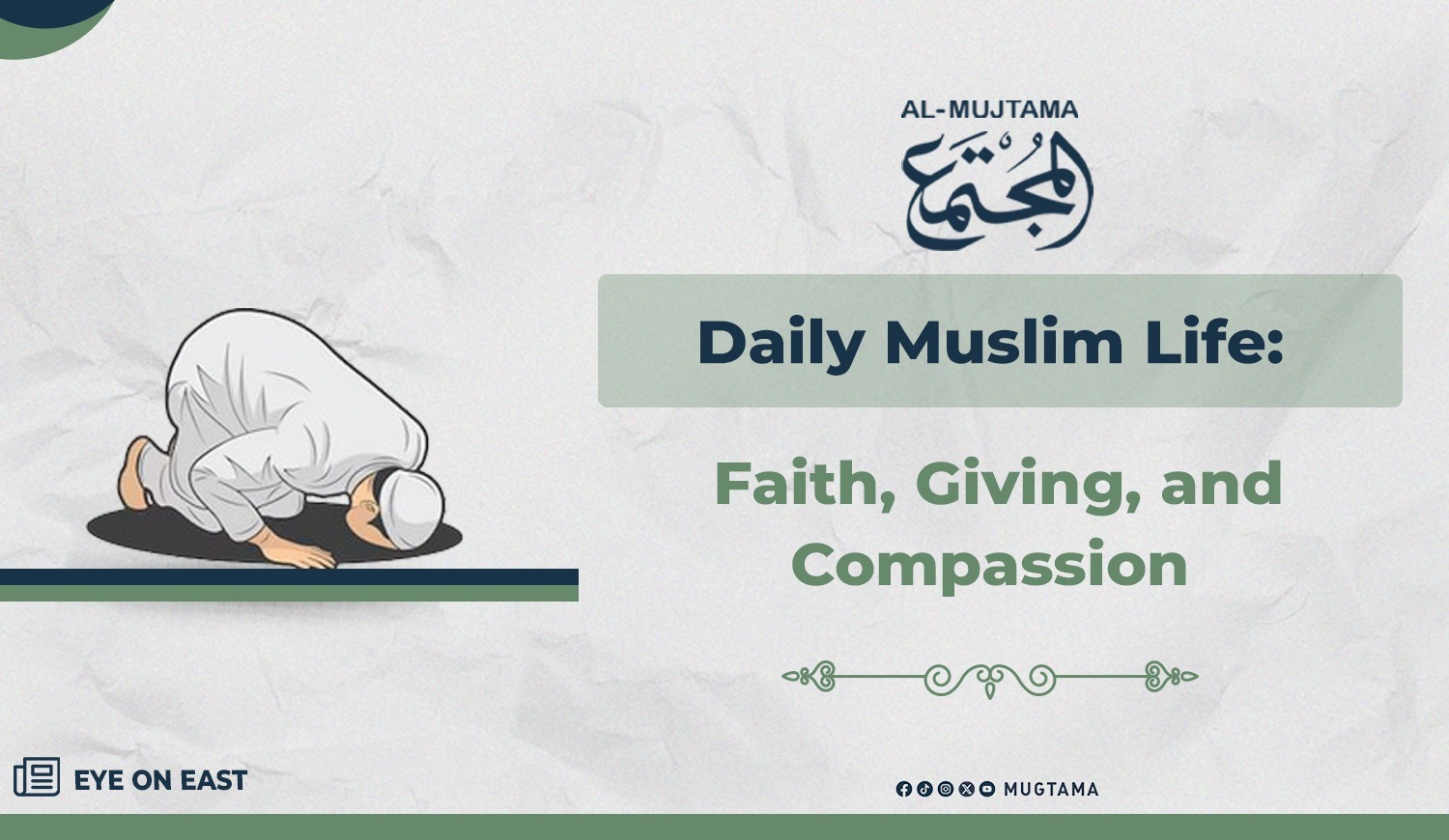Daily Muslim Life: Faith, Giving, and Compassion

The daily life of a Muslim committed to his religion, both in
practice and morals, is based on the foundations of faith, mercy, and
generosity. The day begins with the Fajr prayer and ends with the Isha prayer.
Thus, the rhythm of a Muslim's day reflects a spiritual structure that focuses
not only on beliefs but also on lived values and ethics. This structure extends
across continents and cultures, yet its essence remains remarkably universal.
1. The day begins with the Fajr prayer
A Muslim's day begins before sunrise with the Fajr prayer.
This is not just a spiritual task, but a moment of contemplation and
reflection, a dialogue with God that removes heedlessness and awakens the
heart. Waking up early is itself symbolic: it is a rejection of laziness and a
commitment to achieving goals.
Islam strongly emphasizes cleanliness before every prayer, as
Muslims perform ablution before each one. This physical purification is
parallel to a mental and psychological reset, preparing the heart for humility
and focus.
2. Midday: A pause for prayer and energy renewal
Muslims, whether employees, students, or housewives, are
immersed in their daily responsibilities until midday, whether in their bustling
offices, quiet classrooms, or vibrant markets. Work in Islam is not just
economic; it is an act of worship if performed honestly and ethically.
At noon, the second prayer of the day, Muslims often pause for
a few minutes, whenever possible, to reconnect spiritually, reminding
themselves that their ultimate responsibility lies with God, amidst deadlines
and obligations. In many Muslim-majority countries, public institutions allow
short breaks for prayer; in others, Muslims have designated prayer corners or
rooms.
3. After the Asr prayer, service and awareness
activities begin.
Muslims are encouraged to engage in acts of
charity, service, or community interaction. Islam places immense value on
giving, whether through financial donations (sadaqah) or simple kindness. A
smile to a stranger, helping a colleague, or assisting neighbors all count as
blessings.
After work time comes Asr, the afternoon prayer. Asr prayer
serves as a spiritual checkpoint—an opportunity to reflect on the day so far,
recalibrate priorities, and draw strength for what remains.
4. Evening: Family, Rest, and Reflection
As the sun sets, Muslims gather for Maghrib, the fourth
prayer. The home takes center stage: families unite around dinner, share
stories, and reconnect. In Islam, the family is a sacred institution, and
maintaining ties (silat ar-rahm) is an essential moral duty.
Evening is also a time for Qur’an recitation, contemplation,
and sometimes dhikr—the remembrance of God through repeated praise.
5. Night: Ending with Prayer
Before sleeping,
Muslims pray Isha, the final prayer of the day. It marks closure—not just of
time, but of spirit. It's an intimate moment to ask for forgiveness, to express
gratitude, and to surrender worries. Some also perform Tahajjud, a voluntary
late-night prayer, for deeper supplication.
The Prophet Muhammad (peace be upon him) encouraged believers
to sleep with a clean heart: forgiving those who’ve wronged you, seeking
forgiveness, and trusting in God’s mercy. It's a teaching that turns rest into
a spiritual act.
A Way
of Life
While prayer is a central pillar,
the daily life of a Muslim is greatly connected with ethics. Truthfulness,
modesty, patience, and justice are expected from Muslims across all actions.
Islam demands Muslims to tread lightly on the earth, speak gently, and act with
integrity—even when no one is watching.
Islam is not just a matter of practice, but rather a
comprehensive worldview, where faith informs every action. From the way one
eats and sleeps, to the way one treats strangers or seeks knowledge, a Muslim's
daily life is a constant pursuit of balance between the spiritual and the
worldly.










